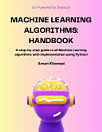CLEAN CODE IN PYTHON: Best Practices for Clean and Maintainable Code
About this ebook
This manual is ideal for developers who want to improve the quality and efficiency of their code by adopting coding practices that make maintenance easier, enhance readability, and reduce complexity. Throughout the chapters, you will learn the fundamental principles of clean code and how to apply them in daily Python development. The goal is to teach you how to write code that is not only functional but also easy to read, test, and modify, contributing to the software’s longevity.
The book's approach goes beyond traditional best practices by introducing essential concepts like SOLID, DRY (Don't Repeat Yourself), KISS (Keep It Simple, Stupid), and the importance of meaningful names for variables and functions. Additionally, the book also covers how to avoid common mistakes and anti-patterns that make code difficult to maintain and scale.
If you are already a Python developer and want to improve your knowledge of writing clean code, or if you are just starting your journey in Python development, this book is designed to be accessible and progressive. Each chapter is carefully structured so you can clearly understand the techniques and principles, with practical examples that can be immediately applied to your projects.
The importance of writing clean code goes beyond readability and aesthetics. It directly impacts development efficiency, facilitates teamwork, and contributes to the continuous maintenance and evolution of applications. By adopting these practices in your projects, you will be creating high-quality software, which not only benefits your career as a developer but also enhances the experience for end users.
This book is an essential reference for anyone looking to transform the way they write Python code, improving both technical quality and the development experience.
TAGS:
Python Java Linux Kali HTML ASP.NET Ada Assembly BASIC Borland Delphi C C# C++ CSS Cobol Compilers DHTML Fortran General JavaScript LISP PHP Pascal Perl Prolog RPG Ruby SQL Swift UML Elixir Haskell VBScript Visual Basic XHTML XML XSL Django Flask Ruby on Rails Angular React Vue.js Node.js Laravel Spring Hibernate .NET Core Express.js TensorFlow PyTorch Jupyter Notebook Keras Bootstrap Foundation jQuery SASS LESS Scala Groovy MATLAB R Objective-C Rust Go Kotlin TypeScript Dart SwiftUI Xamarin React Native NumPy Pandas SciPy Matplotlib Seaborn D3.js OpenCV NLTK PySpark BeautifulSoup Scikit-learn XGBoost CatBoost LightGBM FastAPI Redis RabbitMQ Kubernetes Docker Jenkins Terraform Ansible Vagrant GitHub GitLab CircleCI Regression Logistic Regression Decision Trees Random Forests AI ML K-Means Clustering Support Vector Machines Gradient Boosting Neural Networks LSTMs CNNs GANs ANDROID IOS MACOS WINDOWS Nmap Metasploit Framework Wireshark Aircrack-ng John the Ripper Burp Suite SQLmap Maltego Autopsy Volatility IDA Pro OllyDbg YARA Snort ClamAV Netcat Tcpdump Foremost Cuckoo Sandbox Fierce HTTrack Kismet Hydra Nikto OpenVAS Nessus ZAP Radare2 Binwalk GDB OWASP Amass Dnsenum Dirbuster Wpscan Responder Setoolkit Searchsploit Recon-ng BeEF AWS Google Cloud IBM Azure Databricks Nvidia Meta Power BI IoT CI/CD Hadoop Spark Dask SQLAlchemy Web Scraping MySQL Big Data Science OpenAI ChatGPT Handler RunOnUiThread() Qiskit Q# Cassandra Bigtable VIRUS MALWARE Information Pen Test Cybersecurity Linux Distributions Ethical Hacking Vulnerability Analysis System Exploration Wireless Attacks Web Application Security Malware Analysis Social Engineering Social Engineering Toolkit SET Computer Science IT Professionals Careers Expertise Library Training Operating Systems Security Testing Penetration Test Cycle Mobile Techniques Industry Global Trends Tools Framework Network Security Courses Tutorials Challenges Landscape Cloud Threats Compliance Research Technology Flutter Ionic Web Views Capacitor APIs REST GraphQL Firebase Redux Provider Bitrise Actions Material Design Cupertino Fastlane Appium Selenium Jest Visual Studio AR VR sql mysql startup
About the author
Best-Selling Author, Diego Rodrigues is an International Consultant and Writer specializing in Market Intelligence, Technology and Innovation. With 42 international certifications from institutions such as IBM, Google, Microsoft, AWS, Cisco, and Boston University, Ec-Council, Palo Alto and META.
Rodrigues is an expert in Artificial Intelligence, Machine Learning, Data Science, Big Data, Blockchain, Connectivity Technologies, Ethical Hacking and Threat Intelligence.
Since 2003, Rodrigues has developed more than 200 projects for important brands in Brazil, USA and Mexico. In 2024, he consolidates himself as one of the largest new generation authors of technical books in the world, with more than 180 titles published in six languages.












